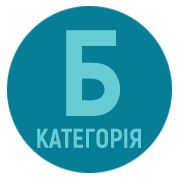ФЕНОМЕН КОРЕЙСЬКОЇ ЕМОЦІЇ ХАН: ЕТИМОЛОГІЯ, ІСТОРІЯ, ДУХОВНІСТЬ
DOI:
https://doi.org/10.25128/2304-1222.20.50.12Keywords:
emotion han, feeling, Korea, Korean people, experienceAbstract
The article deals with the phenomenon of Korean emotion han in the light of historical, religious, social and cultural life of the Korean people. It is a basic and unique feeling that organizes and in some way structures the world of Korean emotions in general and each individual Korean in particular. The aim of this study is to analyze the content of the Korean concept han and unique meaning of the term, give examples of ways to overcome it, and pay particular attention to certain aspects of the historical, religious, social, cultural and political life of Koreans, which is closely related with emotion han. Despite the difficulties in interpreting of this concept, many researchers believe that this is a unique Korean collective sense of pain that is common to all Koreans.
References
Baker, D. (2007), Introduction, In: Religions of Korea in Practice, R. E. Buswell Jr. (Ed.), Princeton, New Jersey. 1–31. Cumings, B. (2010), The Korean War: A History. New York.
De Mente, B. L. (2004), NTC’s Dictionary of Korea’s Business and Cultural Code Words. Singapore.
Han, Gil Soo (1994), Social Sources of Church Growth: Korean Churches in the Homeland and Overseas. Lanham, Maryland. Han, In Sup Kwangju and Beyond: Coping with Past State Atrocities in South Korea, „Human Rights Quarterly”, 2005, 27, s. 998-1045.
Kim, Chongho (2003), Korean shamanism: The cultural paradox. Aldershot, Hampshire, UK.
Kim, Inwhoe (2015), Life Education Shamanism: Korean Shamanism from an Educator’s Perspective, In: Kim, Inwhoe Photographs Collections. Seoul:.
Korean Overseas Information Service. In: Focus on Korea: Korean History, Seoul: Seoul International Publishing House, 1986.
Lee, Jung Young (1981), Korean Shamanistic Rituals. The Hague, Paris, New York.
Lee, Jae Hoon (1994), The Exploration of the Inner Wounds-HAN. Atlanta, Georgia.
Lee, Younghee (2004), Ideology, Culture, And Han: Traditional and Early Modern Korean’s Women’s Literature. Seoul-Edison. Oh, Kyong Geun (2013), Uczucie han jako wartość estetyczno-moralna w kulturze i literaturze narodu koreańskiego. Poznań. Park, Andrew Sung (1993), The Wounded Heart of God: The Asian Concept of Han and the Christian Doctrine of Sin. Nashville.
Ryu, Tongshik (2012), The history and structure of Korean shamanism. Seoul. Son, Chang Hee (2000), Haan (뼑, 踚) of Minjung Theology and Han (뼑, 踦) of Han Philosophy: In the Paradigm of Process Philosophy and Metaphysics of Relatedness. Lanham, Maryland. Wierzbicka, А. (1999), Emocje. Język i „skrypty kulturowe”. W: Język – umysł – kultura, (red.) J. Bartmiński. Warszawa. 163–188.
World (1998), World: Analysis – Koreans give up their gold to help their country ВBC News. January 14. URL: http://news.bbc.co.uk/2/hi/world/analysis/47496.stm [20.05.2020]
Yu, Chai Shin (1988), Korean Taoism and Shamanism, In: Shamanism: The Spirit World of Korea, R.W.I. Guisso & C. S. Yu (Eds.), Berkeley, California. 98–118. Збир, І. (2019), Порівняльний аналіз образу жінки в українській і корейській культурах (на основі праці Івана Франка «Жіноча неволя в руських піснях народних»). В: Іван Франко «Я єсть пролог…»: матеріали Міжнародного наукового конгресу до 160-річчя від дня народження Івана Франка: у 2 т. Львів. Т. 2. 373–386 [Zbir, І. (2019), Porivnyal’niy analiz obrazu zhinki v ukrayins’kiy і koreys’kiy kul’turakh (na osnovi pratsi Ivana Franka „Zhinocha nevolya v rus’kikh pisnyakh narodnikh”). V: Ivan Franko „Ya yest’ proloh…»: materiali Mizhnarodnoho naukovoho konhresu do 160-richchya vid dnya narodzhennya Ivana Franka: u 2 t. Lviv. T. 2. 373–386]. Ковальчук, Ю. А. (2017), Образи корейських жінок у місіонерській прозі початку ХХ століття. В: Тексти доповідей міжнародної наукової конференції «Кореєзнавство в Україні: сучасність і перспективи». Київ. 148–159 [Koval’chuk, Yu. А. (2017), Obrazi koreys’kikh zhinok u misioners’kiy prozi pochatku ХХ stolittya. V: Teksti dopovidey mizhnarodnoyi naukovoyi konferentsiyi «Koreyeznavstvo v Ukrayini: suchasnist’ і perspektivi». Kiyiv. 148–159].
Ли, Кван Сун (2010), Социально-философский анализ семьи (на примере корейской семьи). Философия и общество. Москва. № 3. 149–161 [Lee, Kyong Sung (2010), Sotsial’no-filosofskiy analiz semyi (na primere koreyskoy semyi). Filosofiya i obsshestvo. Moskva. No 3. 149–161]. Налімова, А. О. (2017), Концепт «хан» (한) у сучасній корейській малій прозі. В: Тексти доповідей міжнародної наукової конференції «Кореєзнавство в Україні: сучасність і перспективи». Київ. 228–234 [Nalimova, А. О. (2017), Kontsept «khan» (한) u suchasniy koreys’kiy maliy prozi. V: Teksti dopovidey mizhnarodnoyi naukovoyi konferentsiyi «Koreyeznavstvo v Ukrayini: suchasnist’ і perspektivi». Kiyiv. 228–234].
Семенюк, І. В. (2011), Цінності та об’єкти поклоніння в соціокультурних системах Сходу. Грані. № 6. 54–59 [Semenyuk, І. V. (2011), Tsinnosti ta obyekti pokloninnya v sotsiokul’turnikh sistemakh Skhodu. Hrani. No 6. 54–59]. Семенюк, І. В. (2013), Особливості історичної традиції південнокорейського суспільства, Гуманітарний вісник ЗДІА. № 54. 106–115 [Semenyuk, І. V. (2013), Osoblivosti istorichnoyi traditsiyi pivdennokoreys’koho suspil’stva, Humanitarniy visnik ZDIA. No 54. 106–115].










